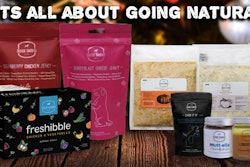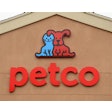
Trying to break into the pet industry can be a somewhat daunting task, especially for those not familiar with the industry but who have a great idea that can bring forth new opportunities in sustainability, new ingredients, new technology, etc. Being a co-founder of my own startup company and having been in the industry for 20+ years, I, myself, found it confusing and difficult to find the right strategic partners – whether it be lawyers for protecting your intellectual property, manufacturers and suppliers to make your product or the right partner for funding your idea.
Finding the right frog
For most start-ups, finding the right partner for funding will be the most difficult task. Most companies will over-value themselves, most investors will certainly under-value your idea, and hopefully you can meet somewhere in the middle. Let’s just say you will be kissing many frogs hoping they will turn into a princess or prince.
Unfortunately, most are just frogs that will give you pointers and key learnings along the way. While you search for that key investor(s) to make your dream a reality, many people will look for different startup accelerators that meet their criteria (and vice versa) for potential networking opportunities, some seed money and guidance navigating through the pet industry.
For most of us in the pet food industry, the key accelerators are Leap Ventures Studio and the Pet Care Innovation Prize. They may present a great opportunity for some companies but can also have their pitfalls.
Leap Ventures Studio
This accelerator program boasts about being the “industry’s first pet care-specific startup accelerator.” When you click on the About link on its website, Leap Ventures goes into detail about its mission and who is supporting the program:
“Even with the emergence of major companies in the space, pet startups still suffer from underinvestment and lack platforms to support them as they scale. Leap Ventures is one of the first programs designed to ignite meaningful growth across the pet care startup ecosystem.
Leap Ventures is a partnership between Michelson Found Animals and Kinship - a division of Mars Petcare. Together, the two companies represent the most innovative thinkers in the pet care industry. Kinship and MFA recognize the immense value of the pet care sector and want to foster innovation and growth from the bottom-up.”
Notice I bolded a key element in the information above, which I will explain later in this post.
Each year Leap Ventures receives many applications, and through their process they narrow them down to a group of finalists they refer to as a cohort. In 2018, the cohort included Animal Biome, CuidaMiMascota, Lacuna Diagnostics, Mix Lab, Pet Plate and Wild Earth. In 2019, the cohort included Barkibu, Jiminys, Pet Releaf, Shameless Pets, Sniff Spot and Smalls.
Pet Care Innovation prize
With this accelerator program, a company could win up to US$20,000 in cash and support, and the potential opportunity to partner with the largest pet care company in the U.S. and second largest in the world.
When up you click on the “About the Prize” link on this accelerator’s website, you learn more about the details of the program.
“Launched in 2016, the Pet Care Innovation Prize (PCIP) is a competition to support and connect innovative early stage companies that have products and/or services already in market. The PCIP is powered by a global leader in pet care – Nestlé Purina PetCare.”
Again, notice I bolded a key element in this information, which I will also explain later.
Similar to Leap Ventures, PCIP receives many applications, and through their process they narrow it down to a group of winners. In 2017 the winners included Ewegurt, Fetch Find, K9 Fit Club, Obe and Pup Pod. In 2018 the winners included Animal Biome, BareItAll Petfoods, Fetch Labs and PupJoy. In 2019 the winners included Basepaws, Bond Pet Foods, GuardianVets, PlayDate and Shameless Pets.
The pet food winners!
For purposes of this blog post and the website it is on, I will focus solely on the startup companies that have won in the food category. Also, it is important to point out that you are able to participate in both accelerator programs. For example, Animal Biome and Shameless Pets were fortunate enough to win in both accelerators. So, let us learn more about the winners:
- BareItAll Pet Foods utilizes Asian Carp and invasive fish species in their dog treats;
- Bond Pet Food is a biotech company developing clean, sustainable and high-quality cultured animal proteins;
- Jiminy’s replaces animal protein with cricket protein, creating a line of sustainable pet food;
- PetPlate is an online subscription service that delivers freshly cooked, vet-designed, human-grade dog food right to your door;
- Shameless Pets upcycles farmer’s leftover pumpkins after Halloween, apple pulp from a cider press and lobster shells to include in treats for dogs;
- Smalls makes human-grade food for cats that leaves the fillers and mystery ingredients behind;
- Wild Earth is a biotech startup developing clean and sustainable gourmet pet food from fungi.
Exciting opportunity?
At the time many of these companies won their “prizes,” they were likely excited for the opportunity to learn from the big companies and their experts. Unfortunately, while working with them myself, it has become apparent to me and others in the industry that these “accelerators” may be simply a way for Mars Petcare and Nestlé Purina to gain new ideas in which their current research and development or product development teams are currently lacking.
Think about it. When was the last true innovation we have seen from these two companies? Similar to other industries, those that cannot innovate simply acquire. Whether it is buying a new company, doing a joint venture or maybe … starting an accelerator program.
Too many coincidences?
In December 2019, Mars Petcare announced they are “creating meat-free pet meals amid rising considerations over the environmental influence of farming.” Furthermore, the company’s head of ventures, Ben Jacobs, stated: “We are able to clear up a number of the planet’s most urgent issues … [if we] effectively produce protein whereas lowering the environmental influence of feeding a whole lot of hundreds of thousands of pets.” This seems to be in line with Leap Ventures’ 2018 recipient Wild Earth.
Coincidentally, Jacobs is part of Leap Ventures Studio as head of ventures & partnerships – Kinship. Remember when I bolded “Kinship – a division of Mars Petcare” above?
It gets even more interesting. A second article stated, “Mars considered making a bid for Quorn Foods to support its plans but chose instead to work on its own meat alternatives.” Quorn Foods produces a meat alternative from the mycoprotein (fungal) Fusarium venenatum. Coincidentally, Wild Earth also produces a meat alternative from a mycoprotein (Aspergillus oryzae). What the fungus!
In March 2019, Nestle Purina created a new line of pet food via a company named Root Lab Pet Food. What are some of the key ingredients they use in their food? They have one recipe that utilizes Asian carp and another that utilizes cricket through their “smarter sourcing” program. Remember, BareItAll Pet Foods won the PCIP award in 2018 for their usage of Asian carp.
Also, companies like Forage Pet Foods have applied for PCIP with their sustainable cricket innovation for pet food. Unfortunately, they did not win the competition. Unlike Leap Ventures aka Mars PetCare, NestléPurina is less transparent in who is active on PCIP; it simply states “Powered by Purina.”
Advice for pet food startups
Most people do not know my father was a police officer. When I was very young, he taught me that if it is too good to be true, then it always is. Hard work and not giving up is the key to achieving your goals, and it never happens overnight.
So, do your homework and be careful of the information you share with accelerators and potential investors. Hold your cards close to your chest. Make sure you have your intellectual property tied up in patents (pending or granted), never ever share your supply chain information (i.e., who supplies your crickets, Asian carp, etc.) and determine if that US$20,000 is really worth having your ideas taken. If your idea cannot be protected, you should reconsider before you apply.
















